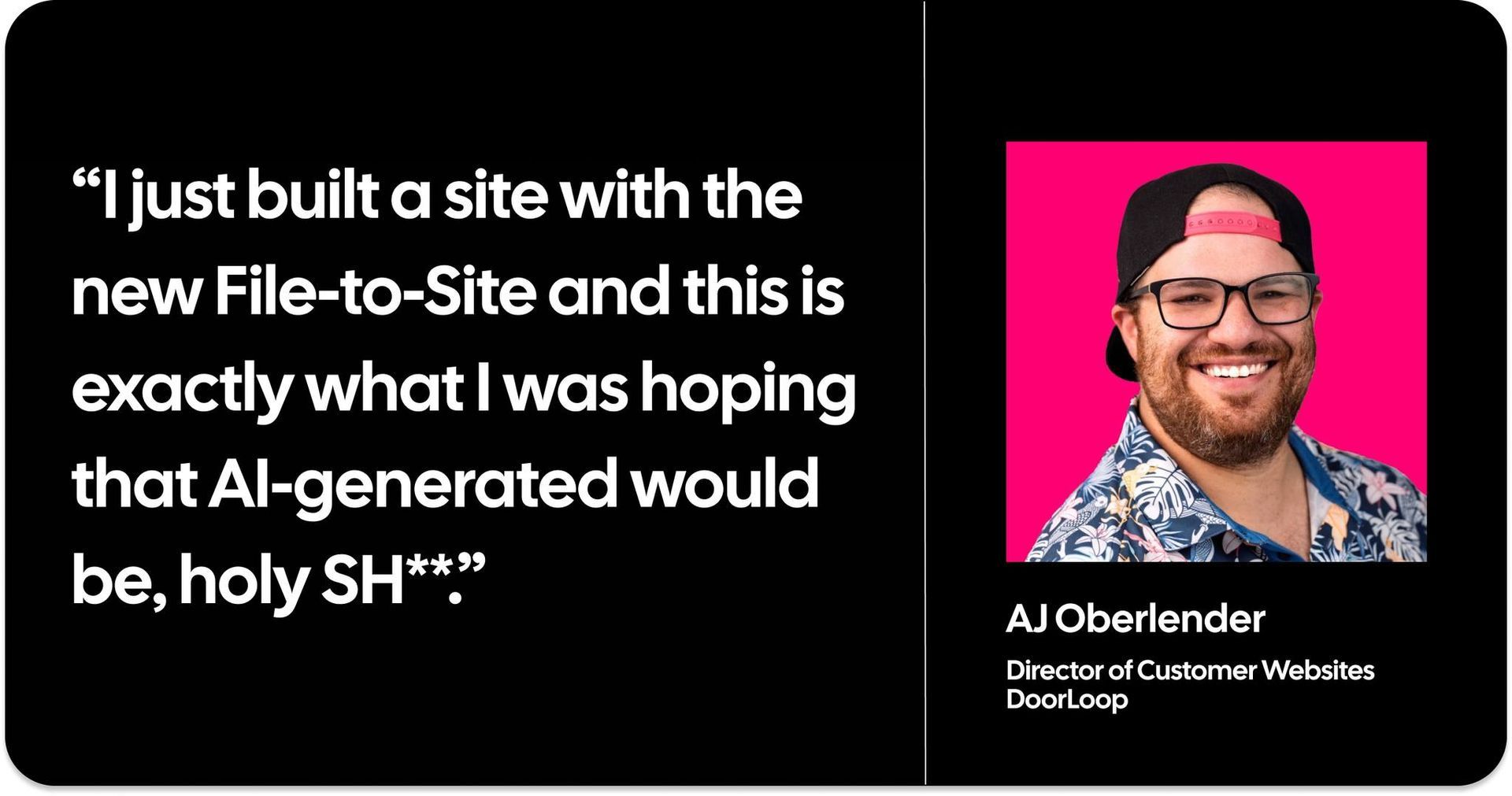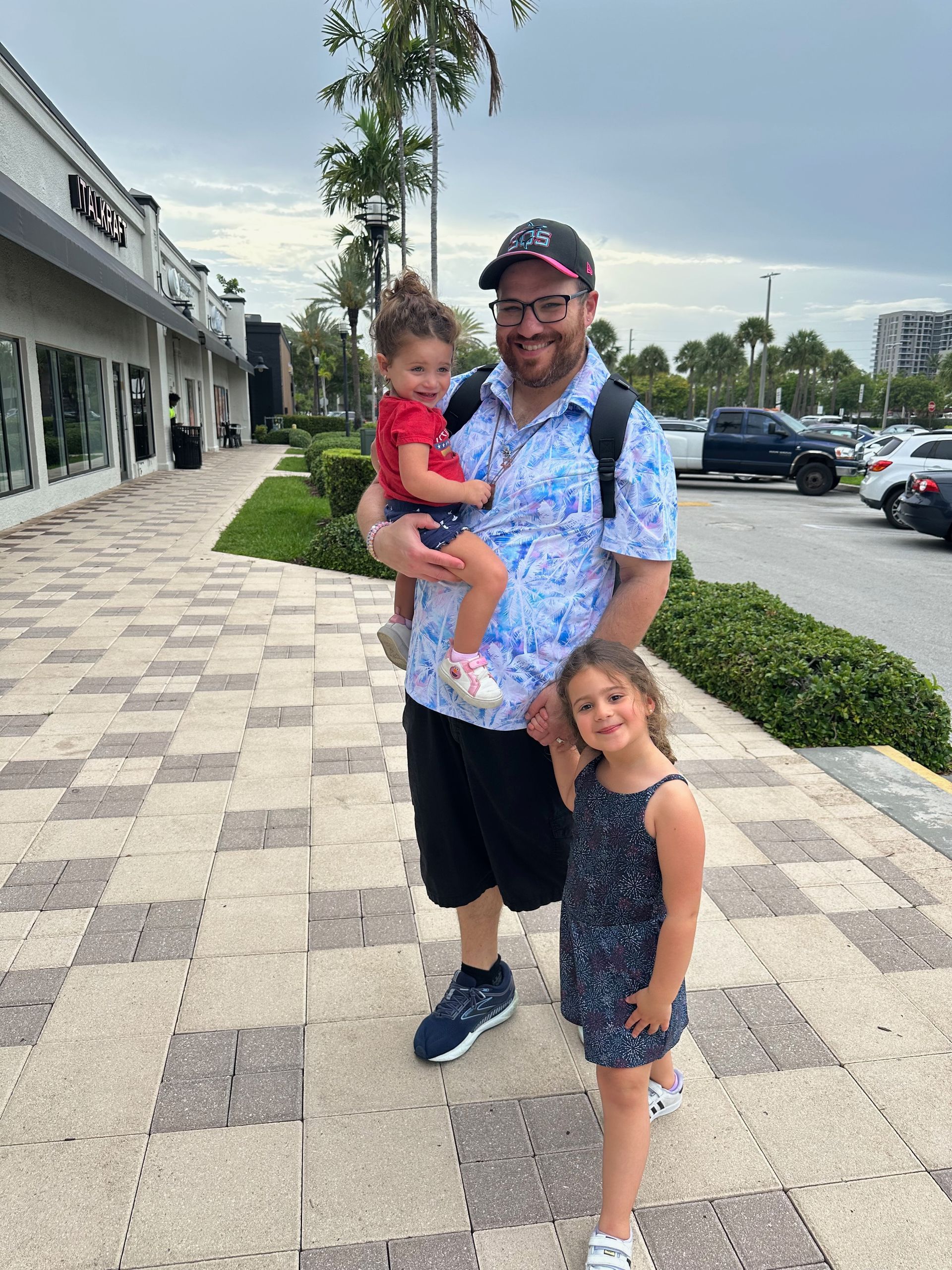
How I Automate Duda Website Copy with Plumb AI and ChatGPT
It was a Tuesday night, around 8:43 PM. Miami heat still radiating through my living room window, Yael and Diana are finally down for the count, and that baby monitor's glowing grayish/green like some sort of parental victory beacon. I'd been tinkering with Plumb AI for the last half a year, completely fascinated by its flow canvas and wondering if I could create something genuinely useful for my DoorLoop customers.
You know that feeling when you discover a new tool and think "there's got to be a way to make this solve real problems"? That was me, three hours deep into building automated workflows that could transform how property management companies get custom website copy. Because honestly, asking a property manager to write compelling web copy is like asking me to fix a broken HVAC unit, it's not happening.
By midnight, I'd created a system that could take any business description and generate completely customized copy for every section of a website template, all while maintaining brand voice and avoiding the generic fluff that makes every property management site sound like it was written by the same tired intern in 2019.
That's when it hit me: we're not just using AI tools anymore. We're architecting processes that work while we sleep.
Why Duda Gets My Vote (And TechRadar's Too)
Look, I've built sites on everything from WordPress to Webflow, but Duda just hits different when you're trying to scale an agency operation. TechRadar recently called them the top pick for agencies in 2025 , and after what I pulled off Sunday night, I totally get why.
Here's what sold me on Duda: that moment when a client sees their nearly-finished site and says "actually, can we try something completely different?" Instead of wanting to throw my laptop out the window, I can literally swap their entire design system in seconds. The templates are fully editable down to the CSS level, but there's this reset feature that's basically a panic button for scope creep.
Wix is cute for mom-and-pop shops, but Duda lets me put my logo where Wix hides the upsell button. And that matters when you're building professional sites for businesses that actually need to convert visitors into leads.
But here's the real magic : their AI Assistant is baked right into the editor. We're talking contextual content generation in 50+ languages, bulk SEO optimization that's 9X faster than manual work , and AI Sections that generate entire page sections from simple text prompts.
Instead of just building faster, I can now offer those surprise-and-delight moments—custom copy that would normally require a separate copywriting budget, all included in the website package. Essential when you've got two toddlers who think "daddy's work time" means "let's see how loud we can be while he's on a client call."
Plus, Duda just won "Best Overall Website Building Platform" in 2024's MarTech Breakthrough Awards. Sometimes it's nice when industry experts validate your tool choices, you know?
The Property Management Prompt That Changes Everything
Here's the actual prompt that's revolutionizing how I handle DoorLoop customer websites (and probably saving my sanity):
You are an award-winning property-management copywriter. PAGE_CONTEXT: {{page}}
ORIGINAL_COPY:
"""
H: {{orig_header}}
S: {{orig_sub}}
B: {{orig_body}}
"""
NEW_BUSINESS:
"""
{{company_description}}
"""
STYLE_RULES:
- Keep H ▸ S ▸ B hierarchy.
- Length: H & S ±5 %, B ±8 %.
- Lexical_Distance ≤30 % overlap with ORIGINAL_COPY.
- Voice = {{voice | default("Seasoned professionals who manage homes as if they were our own")}}
- Tone = {{tone | default("Reassuring-expert")}}
- Cadence = {{cadence | default("Clear, mid-length sentences (12-20 words) with one benefit per line")}}
- SEO: weave in {{keywords}} naturally.
Return ONLY:
---
PAGE: {{page}}
H: ...
S: ...
B: ...
---
This isn't just another copywriting prompt; it's surgical precision for property management websites. The magic happens in those STYLE_RULES: maintaining the original structure while ensuring less than 30% lexical overlap with stock text. That means every DoorLoop customer gets copy that feels completely custom, even though we're working from templates.
I've built separate Plumb flows for each Duda template in my arsenal. Customer fills out their business description, the flow processes it through template-specific nodes (one for homepage hero, one for services, one for about us, etc.), and outputs everything to a clean doc that I can copy-paste directly into their site. No more staring at blank text boxes wondering how to make "We manage properties" sound unique for the 847th time.
The token optimization is real too ; organizations are achieving up to 79% cost reductions through strategic prompt engineering, and this structured approach eliminates the trial-and-error that burns through API credits like a Formula 1 car burns through tires.
Enter Plumb AI: Template Customization at Scale
This is where things get interesting for my DoorLoop customers. Plumb AI just raised $11 million so folks like us can skip the grunt work, and their flow canvas is perfect for turning generic templates into custom experiences.
Here's my actual workflow: Customer gets their Duda site built with stock text → they want it customized → I grab their business description → feed it into the template-specific Plumb flow → get clean copy output → paste directly into their website. Simple, elegant, and it works every single time.
Picture this flow: Business Description Input ➜ Homepage Hero Node ➜ Services Section Node ➜ About Us Node ➜ Contact CTA Node ➜ Format Output ➜ Generate Doc
Each template in my library has its own dedicated flow. A luxury property management company gets completely different treatment than a student housing operation, even though they're using the same base template. The system knows that luxury clients care about "white-glove service" and "premium amenities," while student housing needs to emphasize "affordable" and "convenient to campus."
Plumb AI's multi-model approach means I can use GPT-4 for complex strategic thinking about positioning, then switch to Claude for faster execution on simpler sections, all in the same workflow. The human-in-the-loop feature lets me review and approve before anything goes live, so quality stays high while efficiency skyrockets.
Why This Matters for Property Managers (And My Sanity)
Let's be honest here. Most property management company owners aren't copywriters. They know how to fill vacancies, handle maintenance requests, and deal with difficult tenants, but asking them to write compelling web copy? That's like asking me to diagnose why their pool pump isn't working. We both know how that's going to end.
Before this automation setup, I had two pretty lousy choices: spend hours crafting custom copy (expensive for them, time-consuming for me) or give them generic template text that screams "I built this in 2019 and never updated it." Neither option felt great, honestly.
Now? Their business description becomes the seed for everything. A family-owned company managing 200 units in Kendall gets completely different messaging than a corporate operation handling 2,000 apartments downtown. The automation handles the heavy lifting while I focus on strategy and making sure the voice feels authentically theirs.
Organizations implementing comprehensive automation strategies are saving 18-20 hours per week , and I'm definitely seeing similar results. What used to be a 3-hour copywriting session is now a 20-minute review and approval process. I can keep my DoorLoop website packages competitively priced while maintaining the speed that property managers desperately need, especially when they're trying to fill units in Miami's competitive rental market.
The best part? Companies report 25-30% average productivity gains from automated processes , which means I can take on more DoorLoop customers without expanding my operation or burning myself out. More importantly, my Sunday nights are mine again.
Beyond Templates: Becoming a Process Architect
This isn't just about faster copywriting, though. I'm thinking bigger now— process architecture instead of task automation.
The workflow I built Sunday night? It's now a reusable template that I can trigger for any new customer. What used to be a conversation about "we can add custom copy for an additional fee" is now "your copy is already custom; let me show you." I'm scaling my one-person operation without adding overhead, which means better margins and happier clients. Not a bad trade-off.
This is the future of agency work: humans handling strategy and relationships while AI handles execution and optimization. The possibilities for intelligent automation are endless. Imagine systems that could monitor performance and suggest optimizations, or workflows that adapt content based on seasonal trends. Companies using comprehensive automation strategies are saving 18-20 hours per week and hitting ROI within 12 months. The ones that don't adapt? They'll be competing on price while we're competing on speed and innovation.
And let me tell you, competing on innovation is a lot more fun than competing on price.
Your Turn to Build Something
Want to see this stuff in action? Book a 15-Minute Flow Audit and I'll review your current process, spot the bottlenecks, and show you exactly where automation could save you hours per week.
The best time to build these systems was six months ago. The second-best time? Right now, before your competitors figure out what we're up to.
Because trust me, they will figure it out eventually. The question is: will you be leading the pack or playing catch-up?
Building something interesting with AI automation? Hit me up on LinkedIn or drop a comment below. Always curious to see how other folks are connecting these dots, especially if you've got Miami-area clients who need websites that actually convert.









